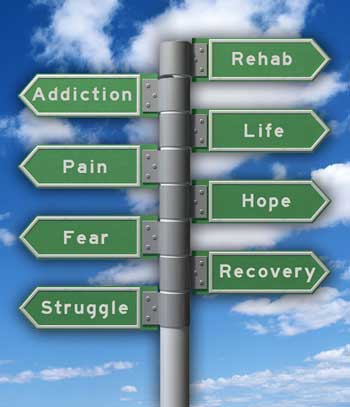Christian Residential Rehab Collegedale TN
Home
Christian Residential Rehab Collegedale TN Resources
Counseling[edit] Traditional addiction treatment is based primarily on counseling. Like a cancer, recovering from addiction may make a trip to the moon seem like a walk in the park. “My recovery is the single greatest accomplishment of my life. In the center, treatment is usually offered in an inpatient basis or outpatient care. And addiction to opioid painkillers can be so powerful it has become the major risk factor for heroin abuse. When people take drugs, this reward system becomes overstimulated, usually from an excess buildup of dopamine. The success of the treatment also depends on … Continue reading “Christian Rehab Programs How Do They Work” Christian Rehab Centers handle issues such as drug addiction, problem drinking and alcoholism through a faith-based treatment methodology.
Drug and alcohol treatment recovery is a long-term process that presents many challenges, and to overcome these an individual needs to be strong with faith and patience to wait upon the Lord and no longer turn to drugs and alcohol in times of trouble. At that point, it is up to the individual to apply what they have learned and move forward with life. We allow the patient to become an active participant in the planning of their treatment.
Here are Some Even more Resources on Christian Addiction Recovery Programs

Below are Some More Resources on Christian Addiction Recovery Programs Collegedale TN
But don’t make hollow threats or set rules that you cannot enforce—and make sure your spouse agrees and is prepared to enforce the rules. The drug addict himself must be ready to begin addiction treatment or it will not be successful. Perhaps there are things that you would do differently if you had it to do over. Confidentiality is at the heart of our addiction treatment program. He told me that he quit a month ago but recently I've seen the symptoms of addiction return.
More Details Around Christian Alcohol Rehab Programs
But if the person is unconscious and has trouble breathing CALL 911 FOR HELP right away! Drug rehab programs focus on educating the drug abuser, while offering behavioral therapy. For legal drugs such as alcohol, complete abstention—rather than attempts at moderation, which may lead to relapse—is also emphasized ("One is too many, and a thousand is never enough.") Whether moderation is achievable by those with a history of abuse remains a controversial point, but is generally considered unsustainable.[2] Types of treatment[edit] The brain’s chemical structure is impacted by drugs of abuse and these changes are present long after an individual stops using, This change in brain structure increases risk for relapse, making treatment an important part of the rehabilitation process.[3] Various types of programs offer help in drug rehabilitation, including: residential treatment (in-patient/ out-patient), local support groups, extended care centers, recovery or sober houses, addiction counselling, mental health, and medical care.
Right here are Some Even more Resources on Christian Care Rehab Collegedale TN
Christian addiction recovery programs work by guiding you through your recovery journey and helping you to find a renewed faith for your own personal benefit and to benefit your recovery. It can have immensely adverse effects on the health, social life, and intimate relationships of the drinker. Forgiving yourself is a large part of addiction recovery. Other signs include: When a person feels that he or she needs to use the drug on a regular basis, whether daily or several times throughout the day Experiencing strong urges to use a drug Maintaining a steady supply of the drug Falling short in school or work responsibilities due to substance abuse Engaging in risky behavior to obtain the drug (i.e. stealing or doing other things a person would not normally do) Wanting to stop using the drug, but being unable to successfully quit Undergoing withdrawal when a person tries to quit When trying to recognize drug addiction symptoms in those around you, behavioral changes may be the biggest clue. The food and housing are included in the cost of the rehabilitation program; however, much varies depending on the price of the program. Our Christian Counselors are here to help you 24 hours a day, 7 days a week. A vital part of finding sobriety is receiving genuine support which is free of judgement. Some physicians may also be authorized to administer addiction treatment medications, such as methadone and buprenorphine. They are trained to develop recovery programs that help to reestablish healthy behaviors and provide coping strategies whenever a situation of risk happens. With the right treatment and support, you can counteract the disruptive effects of drug use and regain control of your life.
Click Here for More Information
Previous Next
You may also like:
Center For Christian Recovery Rowland Heights CA
Christian Drug Rehab Wv Moorhead MN
Best Christian Rehab Centers White Oak MD
Religious Rehabilitation Programs Norman OK